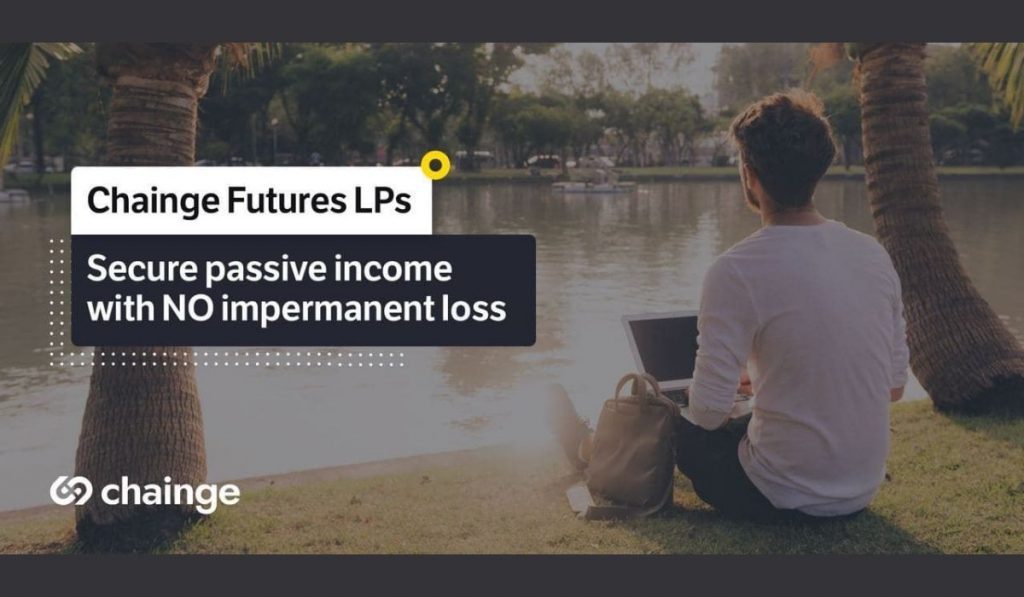Chainge Finance, a crypto fintech company, launches the next-generation version of staking – Time Framing: a feature that eliminates the risks and rigidity that usually come with regular staking, as well as impermanent loss altogether when it comes to Futures liquidity pools.
Time-framing enables users to receive interest instantly without delays and very competitive APYs. The feature is available in the Chainge Finance app for iOS and Android.
Liquidity pools are basically the way cryptocurrency stays liquid in the market. They automate swaps – sale and purchase are the work of algorithms. The pool participants, also called liquidity providers, are awarded interest for their participation and overall network support. However, when a digital asset gets sold in high amounts, the funds in liquidity pools fall and so does liquidity. That negatively affects liquidity providers – they can lose on token volume – this phenomenon is known as impermanent loss. But Time Framing aka creating actual Futures made possible Futures liquidity pools, which implies users can avoid this type of loss, receive higher rewards and better interest through the introduction of futures liquidity pools.
The supporting Fusion DCRM tech has been developed by highly esteemed cryptologists, among which Rosario Gennaro, Professor of Computer Science at CUNY, Steven Goldfeder, Ph.D., Postdoctoral Researcher in the Department of Computer Science at Cornell University, Louis Goubin, Professor of Computer Science at the University of Versailles and Pascal Paillier, Ph.D., CEO, and Senior Security Expert at CryptoExperts.
Using Time Framing, liquidity providers can now lend their tokens usage rights and instantly receive rewards in asset futures with an established maturity date. On that specific date, futures turn into spot and can be traded as regular cryptocurrencies with no limits. If they choose not to wait for the maturity date, users can also liquidate their TF assets in the Futures DEX. Another key benefit of this feature is that the credited funds do not leave the user’s wallet.
 
 
The Chainge Team emphasized that the high APYs offered are made possible by offering the rewards in their CHNG native token, alongside market arbitrage opportunities. The firm also states that the provided interests are among the highest on the market right now. However, the company also informs users that APYs remain dependent on market movements and amount of assets in liquidity pools + other factors. You can check all daily updated APYs here.
DJ Qian, the founder of Chainge Finance, said: “Liquidity pools have always been an attractive option for those users who want to avoid the stress of trading and instead focus on passive income. However, the falls in liquidity can become dramatic and we were looking for a way to solve it. Future liquidity pools do just that – users make money in their sleep without worrying and we award them in return for the involvement”.
As explained, TF-assets are basically spot assets with a different starting date. This means Futures Liquidity pools are a lot like single token farming; which implies NO impermanent loss since the users’ TF-assets will turn to spot on the maturity date.
Futures liquidity pools are made possible through the DCRM tech (Distributed Control Rights Management) powered by Fusion. The technology provides automated transactions with bank-grade security and chooses the fastest and most suitable network for transfers, meaning users do not need to deep dive into finding the chain with the lowest fees and best speed.
About Chainge Finance
Chainge Finance is a DeFi fintech startup founded in late 2020. Its goal is to build a digital neobank on blockchain and offer everyone access to crypto finance with no limits. Change uses the latest technology to provide top-level security and fast transactions, such as DCRM (Distributed Control Rights Management), TL (Time Locking), QS (Quantum Swap), USAN (Universal Short Account Number), and SCT (Smart Contract Template). The advanced tech makes possible a wide array of services, including Cross-chain Roaming, Decentralized Escrows, a Spot DEX, a Futures DEX, an Options DEX and corresponding Liquidity Pools.


